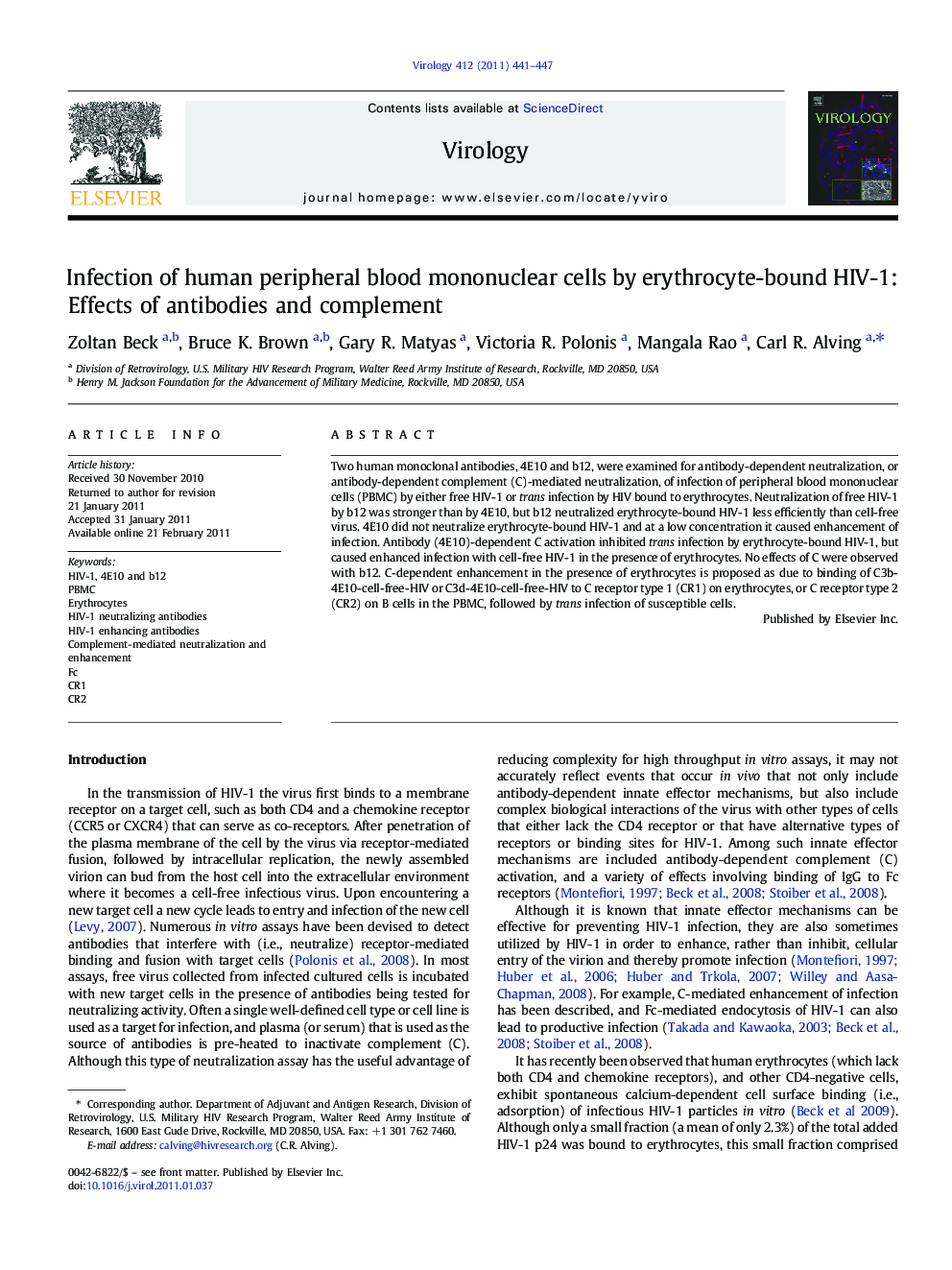| Article ID | Journal | Published Year | Pages | File Type |
|---|---|---|---|---|
| 3425008 | Virology | 2011 | 7 Pages |
Two human monoclonal antibodies, 4E10 and b12, were examined for antibody-dependent neutralization, or antibody-dependent complement (C)-mediated neutralization, of infection of peripheral blood mononuclear cells (PBMC) by either free HIV-1 or trans infection by HIV bound to erythrocytes. Neutralization of free HIV-1 by b12 was stronger than by 4E10, but b12 neutralized erythrocyte-bound HIV-1 less efficiently than cell-free virus. 4E10 did not neutralize erythrocyte-bound HIV-1 and at a low concentration it caused enhancement of infection. Antibody (4E10)-dependent C activation inhibited trans infection by erythrocyte-bound HIV-1, but caused enhanced infection with cell-free HIV-1 in the presence of erythrocytes. No effects of C were observed with b12. C-dependent enhancement in the presence of erythrocytes is proposed as due to binding of C3b-4E10-cell-free-HIV or C3d-4E10-cell-free-HIV to C receptor type 1 (CR1) on erythrocytes, or C receptor type 2 (CR2) on B cells in the PBMC, followed by trans infection of susceptible cells.
